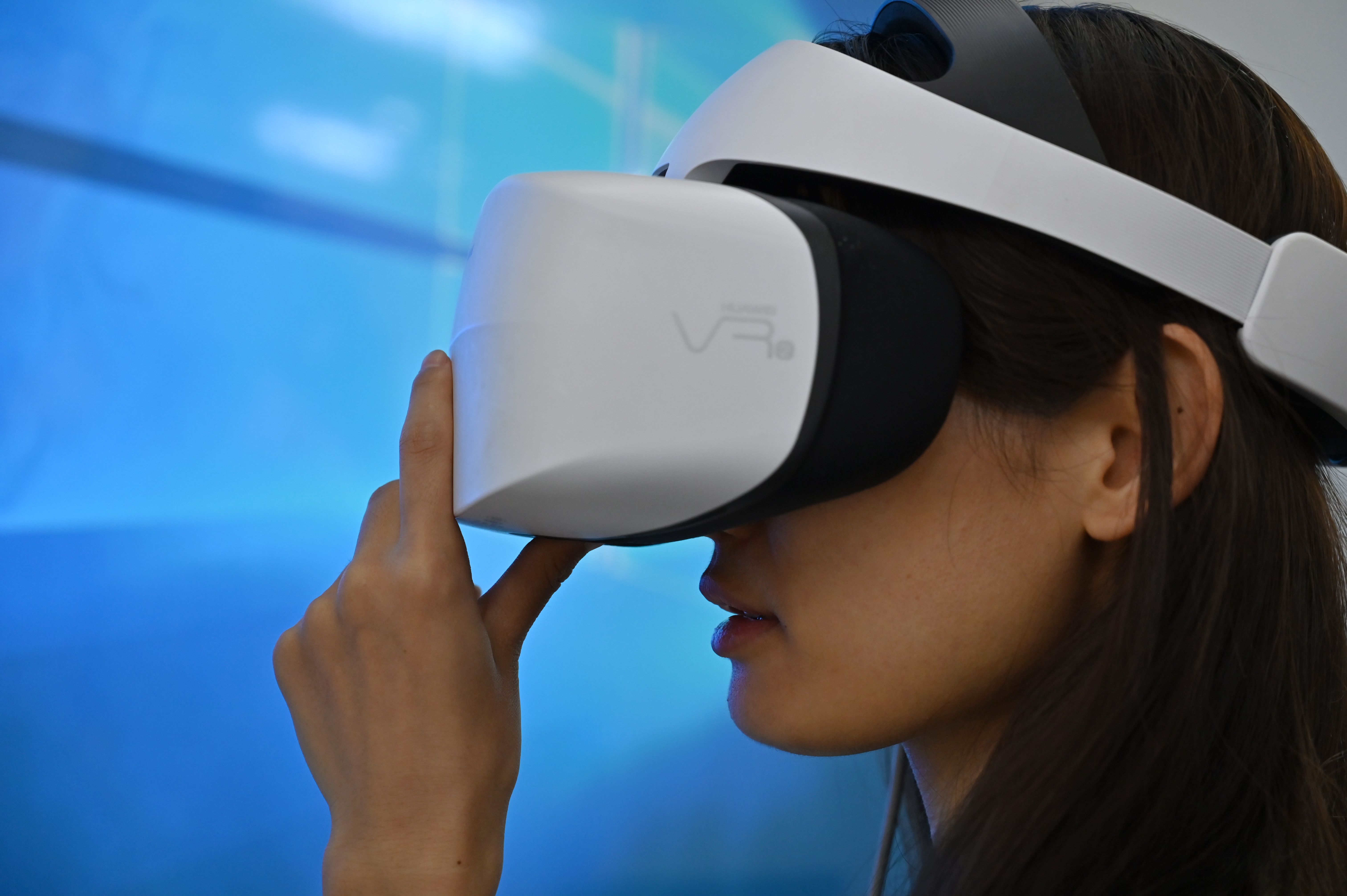Is virtual reality the pain medicine of the future?


A free daily email with the biggest news stories of the day – and the best features from TheWeek.com
You are now subscribed
Your newsletter sign-up was successful
Virtual reality could be the drug-free pain medicine of the future.
A study published this month in the journal PLOS ONE looked at the effectiveness of VR intervention on hospital patients experiencing pain, and found that the technology had "benefits across conditions."
Tom Norris, a 70-year-old Los Angeles resident with chronic pain throughout his body, told NPR that when he uses his VR headset, he gets a "strong feeling of pleasure, relaxation and peace." His attention is diverted, making his pain manageable.
The Week
Escape your echo chamber. Get the facts behind the news, plus analysis from multiple perspectives.

Sign up for The Week's Free Newsletters
From our morning news briefing to a weekly Good News Newsletter, get the best of The Week delivered directly to your inbox.
From our morning news briefing to a weekly Good News Newsletter, get the best of The Week delivered directly to your inbox.
The study analyzed 61 patients in a VR group, who were given a library of 21 different VR experiences, ranging from a guided relaxation to playing basketball to an animated Rube Goldberg machine. The 59-person control group watched television programming centered on health and wellness. Results showed that 65 percent of the VR patients had a clinically significant pain response, compared to 40 percent of the control group.
VR is being analyzed for more targeted types of pain as well: A hospital in Wales is testing the effects on reducing labor pain, reports BBC.
The study in PLOS ONE received some funding from a VR software company, but they played no role in the study, lead author Brennan Spiegel told NPR.
The authors of the study noted that they aren't sure how VR reduces pain, but distraction is a possibility: "By overwhelming the visual, auditory, and proprioception senses, VR is thought to create an immersive distraction that restricts the brain from processing pain." Read more at NPR.
A free daily email with the biggest news stories of the day – and the best features from TheWeek.com
Taylor Watson is audience engagement editor for TheWeek.com and a former editorial assistant. She graduated from Syracuse University, with a major in magazine journalism and minors in food studies and nutrition. Taylor has previously written for Runner's World, Vice, and more.
-
 5 calamitous cartoons about the Washington Post layoffs
5 calamitous cartoons about the Washington Post layoffsCartoons Artists take on a new chapter in journalism, democracy in darkness, and more
-
 Political cartoons for February 14
Political cartoons for February 14Cartoons Saturday's political cartoons include a Valentine's grift, Hillary on the hook, and more
-
 Tourangelle-style pork with prunes recipe
Tourangelle-style pork with prunes recipeThe Week Recommends This traditional, rustic dish is a French classic
-
 Nobody seems surprised Wagner's Prigozhin died under suspicious circumstances
Nobody seems surprised Wagner's Prigozhin died under suspicious circumstancesSpeed Read
-
 Western mountain climbers allegedly left Pakistani porter to die on K2
Western mountain climbers allegedly left Pakistani porter to die on K2Speed Read
-
 'Circular saw blades' divide controversial Rio Grande buoys installed by Texas governor
'Circular saw blades' divide controversial Rio Grande buoys installed by Texas governorSpeed Read
-
 Los Angeles city workers stage 1-day walkout over labor conditions
Los Angeles city workers stage 1-day walkout over labor conditionsSpeed Read
-
 Mega Millions jackpot climbs to an estimated $1.55 billion
Mega Millions jackpot climbs to an estimated $1.55 billionSpeed Read
-
 Bangladesh dealing with worst dengue fever outbreak on record
Bangladesh dealing with worst dengue fever outbreak on recordSpeed Read
-
 Glacial outburst flooding in Juneau destroys homes
Glacial outburst flooding in Juneau destroys homesSpeed Read
-
 Scotland seeking 'monster hunters' to search for fabled Loch Ness creature
Scotland seeking 'monster hunters' to search for fabled Loch Ness creatureSpeed Read
